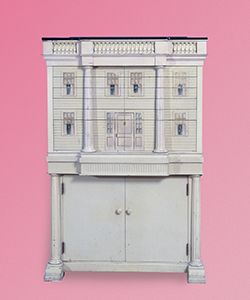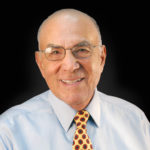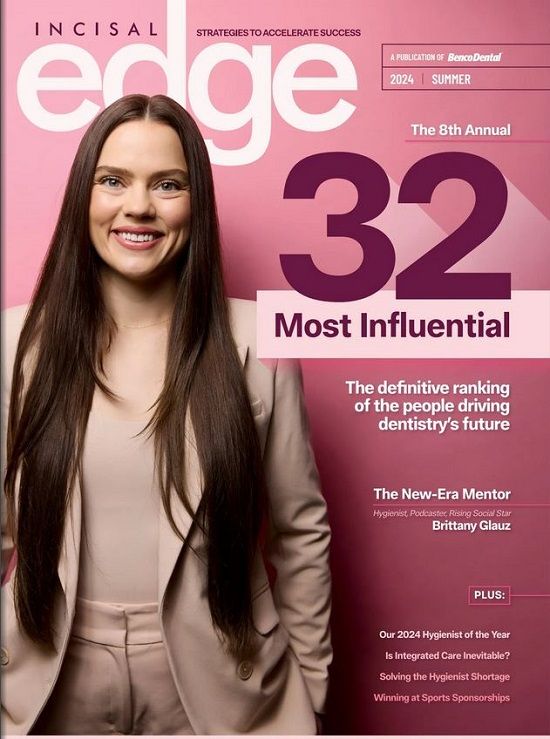This dollhouse-style dental cabinet represents the emergence of pediatric dentistry as we know it today.

Glass Houses: Few of these delicate collectibles survived due to their damage-prone glass roofs and the perils of 1930s-era, pre-Styrofoam shipping protocols.
PEDIATRIC DENTISTRY was in its infancy when this cabinet was built in 1933. In fact, the American Dental Association didn’t even officially recognize it as a specialty until the 1940s. Using cabinetry that was specifically designed to be kid-friendly was highly unusual during this era when most dentists didn’t make a big distinction between treating children and adults. (Not that it made going to the dentist fun, but at least having instrument storage that resembled a toy was a step in the right direction.)
Given the circumstances, it’s no surprise that only 50 or so of this model were ever built. It was crafted by the American Cabinet Company in two styles: one with a gabled glass roof, and the much rarer model shown here, with a flat glass roof. Neither the manufacturer nor the shipper guaranteed the glass would arrive unbroken, so finding an original model like this one makes it even more compelling. A later model, with a much less fragile shingled roof, was made in bigger quantities; you might come across a few today.
The American Cabinet Company was one of several Wisconsin-based manufacturing businesses founded by James Edward Hamilton (1852–1940). He started off making pails but later branched into manufacturing wooden letterpress type for printing presses just as the newspaper and printing industries were taking off. The company’s explosive growth led to cabinetmaking ventures aimed first at printers, then later at medical and dental customers. It still exists today, under a different name, as a maker of medical furniture, but this dollhouse cabinet shows an early attempt at innovation for an emerging dental specialty. ■




